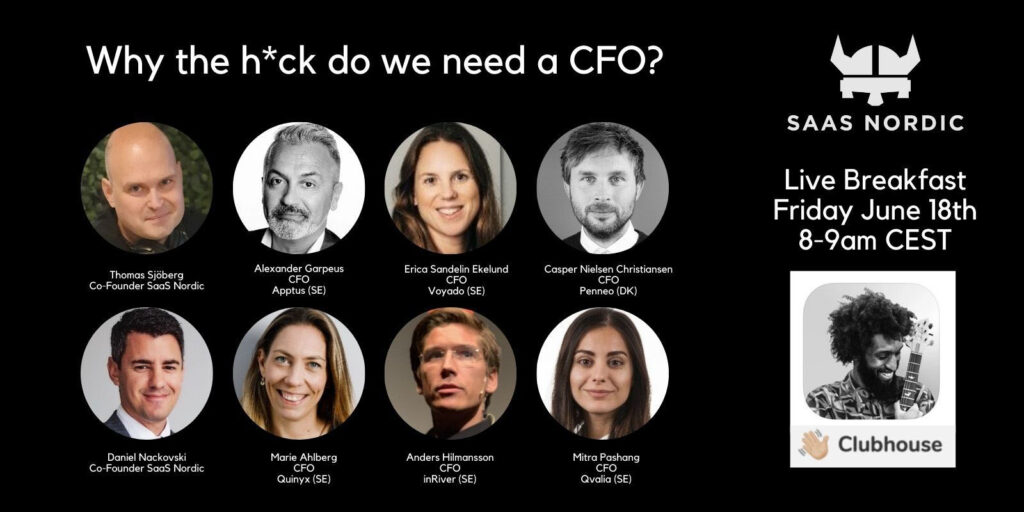
Panelists:
Alexander Garpeus, CFO at Apptus Technologies AB (SE)
Erica Sandelin Ekelund, CFO at Voyado (SE)
Casper Nielsen Christiansen, CFO at Penneo A/S (DK)
Marie Ahlberg, CFO at Quinyx (SE)
Anders Hilmansson, CFO at inRiver (SE)
Mitra Pashang, CFO at Qvalia (SE)
Key takeaways:
- The CFO’s role is to be a financial coach and architect, steering the company in the right direction based on data.
- The right time to bring a CFO on is when you need a more structured approach to your capital. Often this is around the time of B-round funding.
- A commercial mindset and business acumen are most important; the accounting part is more of a hygiene factor.
- You don’t need to be an accountant to be a CFO; CFOs come from diverse backgrounds. Communication and leadership skills are vital.
- The CFO helps put fuel under the SaaS fire by understanding the unit economics of SaaS growth and planning expansion accordingly, guiding the management and the operational team in the right direction.
- At an early growth stage, a junior financial manager can be a great option. Recruit a person with a commercial mindset who’s not just focused on crunching numbers.
- Once you start looking for funding or M&As, you need to have your house in order. If you don’t, it will affect your business evaluation.
- LTV to CAC, growth rate, cash flow, cash burn, and PMO are some of the most important KPIs that SaaS CFOs track and drive.



